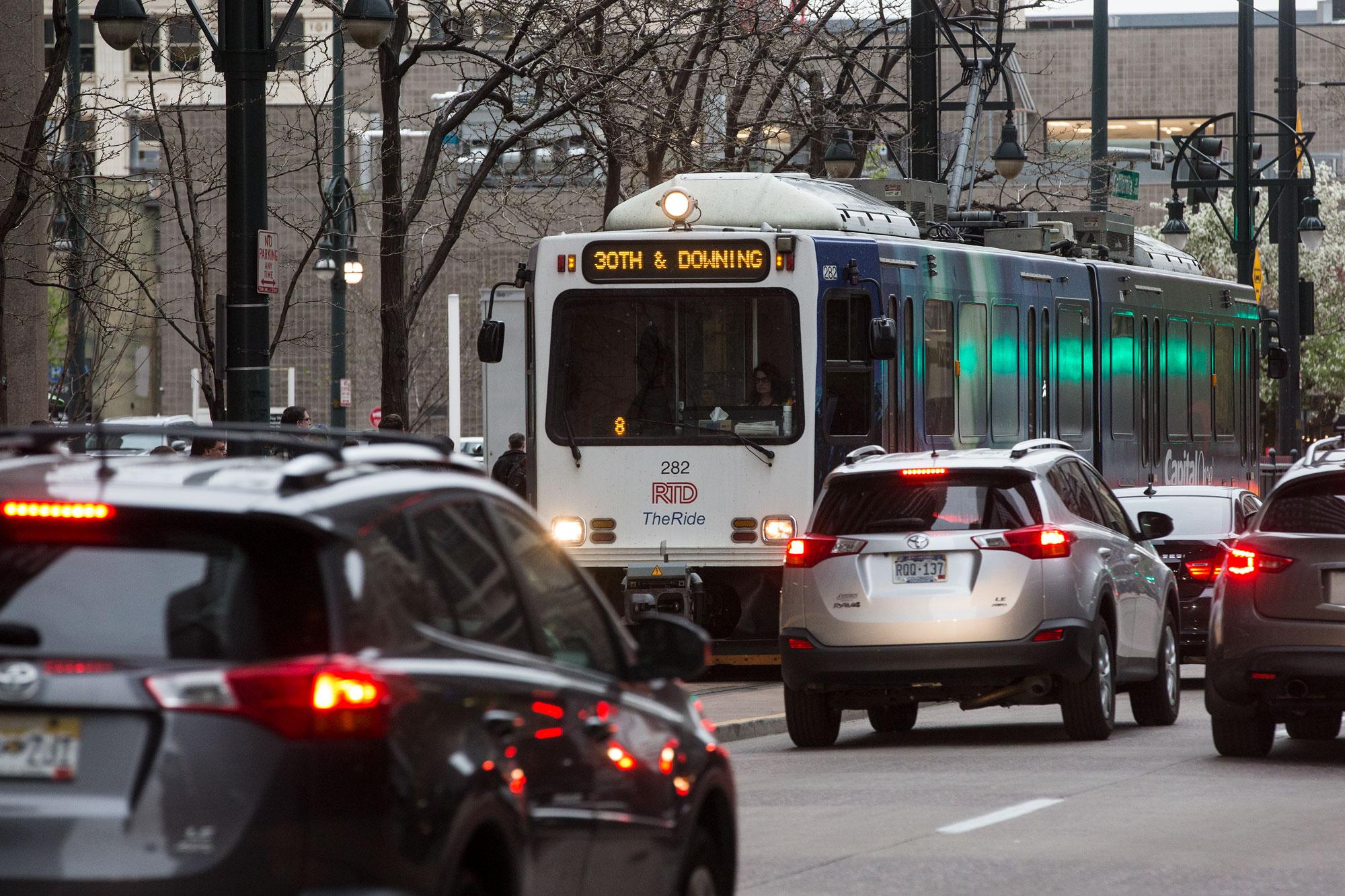
Late last year, Gov. Jared Polis said the state was ready to pay for more public transportation — but that the funding stream should come with reforms for the Regional Transportation District.
The 2024 legislative session has now wrapped and it’s clear that the funding will happen but the reforms won’t.
The legislature passed bills that raise new money for public transit through new fees on oil and gas production and rental cars. Some of that funding comes with strings attached for the metro Denver transit authority. But the marquee RTD reform measure, House Bill 24-1447, failed under pressure from district officials, advocacy groups and others.
The first version of the bill would have eliminated 10 elected positions from RTD’s 15-member board of directors in favor of newly appointed seats and elected seats that would represent the entire district. The bill would have made other changes, too, but “all eyes and all energy went to the governance piece,” said Rep. Meg Froelich, D-Cherry Hills Village.
“People were really spun up about that piece and really unable to have a conversation about just about anything else,” she said.
Voters made the RTD board an elected body in 1980. Froelich and other sponsors of the proposed reform legislation argued that the system that’s been in place since then has failed to represent communities of color, people who depend on buses and trains, riders with disabilities and other groups. They also point out that many RTD board races fail to attract more than one candidate; some have none at all.
But the sponsors faced a wide-ranging backlash. Terrance Carroll, a Black former Colorado House speaker, criticized the proposed move to at-large seats, pointing out their racist history. The RTD board and the Denver City Council unanimously opposed the bill, and a former RTD board chair said it could “annihilate” the state’s largest transit authority.
So the sponsors dropped that proposed change in favor of establishing a subcommittee to evaluate board governance. They still had high hopes for the bill, which was stuffed with other accountability provisions including directives for RTD to improve collaboration with other governments, apprise lawmakers of long-term plans, and increase ridership. It also would have raised board members’ pay in an effort to attract more candidates.
The House passed the toned-down bill last week. It cleared its first Senate committee but never got a hearing in its second committee.
The Senate sponsor, Faith Winter, D-Broomfield, said the many parties interested in shaping the bill’s outcome couldn’t find consensus.
“You had some stakeholders saying absolutely no amendments,” she said “You had some stakeholders saying, ‘we must have these amendments to support.’ We just couldn't find agreement in the end.”
Other interest groups, from individual cities within RTD’s boundaries to advocacy groups, also wanted their own guaranteed seats on the board, Winter said.
There were other objections, too. One transit advocacy group was concerned that the proposed committee on governance would drag down RTD’s possible request to voters this fall to let it keep revenue that would otherwise be returned under the Taxpayer’s Bill of Rights.
“We were very worried that having this conversation about governance would erode support for RTD at a critical moment in time,” said Ean Tafoya, Colorado State Director of GreenLatinos. His group wants to see the transit authority retain its elected board.
RTD Board Chair Erik Davidson said the agency opposed the bill and was grateful legislators heard their concerns. He said RTD would continue to carry out recommendations made by a state-convened “accountability committee,” restore its workforce, and advocate for more funding.
“We are grateful to have many growing partners in these efforts,” Davidson wrote in an email to CPR News.
Bill sponsors and a spokesperson for Gov. Jared Polis said they will keep working on ways to reshape the transit authority’s governance ahead of the next legislative session.
- Colorado leaders finally appear to be ready to fund RTD. But there are strings attached
- Facing backlash, state Democrats back off changes to RTD leadership that would have removed more than half its board members
- Lawmakers want more rental car fees. The industry could wreck state finances in return
- Gov. Polis announces major oil and gas truce in exchange for transit funding
- After failed land use bill, Gov. Polis aims to link climate, housing and transit — and tie state funding to RTD overhaul









